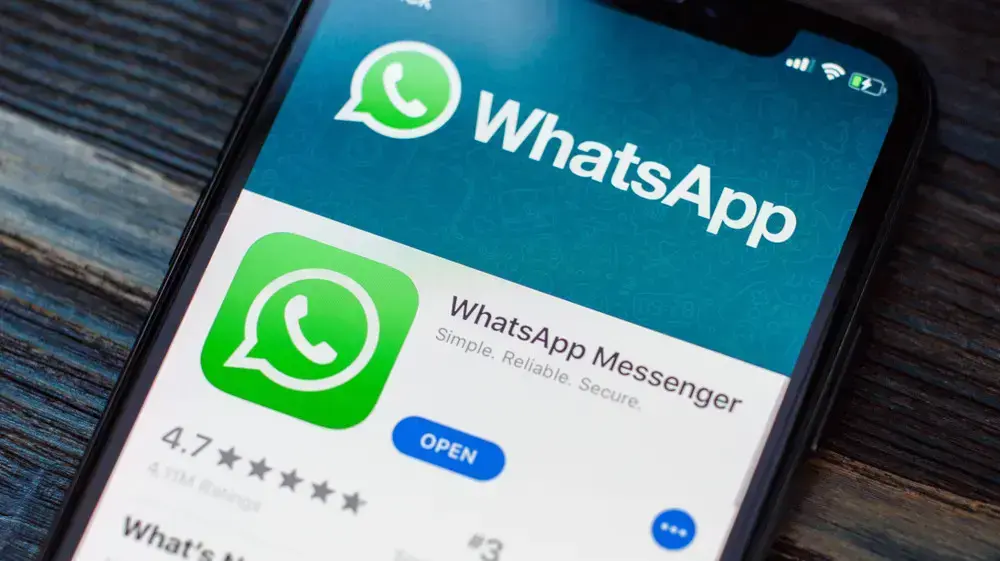technology
news
No, Rami Levy and Shufersal do not share prizes
Did you receive a message on WhatsApp about a prize of NIS 2,000 in the lottery?
This is a scam: the hackers' efforts to be more sophisticated are growing, as they continue to try to match the special events scams.
Purpose: To collect information from your phone
Tags
fraud
Rami Levi
Yinon Ben Shoshan
Sunday, 12 September 2021, 11:03 Updated: 11:13
Share on Facebook
Share on WhatsApp
Share on general
Share on general
Share on Twitter
Share on Email
0 comments
(Photo: ShutterStock)
No need to click on the link, you will not win any raffle:
Last weekend, WhatsApp messages were circulated (again) announcing to the recipients that they could win a prize, as part of a raffle for "Shufersal 60th anniversary celebrations", "50th anniversary celebrations for Rami Levy", or "100th anniversary celebrations To Toyota. "
In the first stage, after relieving the link that goes through the message on WhatsApp, you come to a page that congratulates you on the possibility of winning a gift card for a total of NIS 2,000.
All you have to do is answer a few simple questions like "Do you know the network", "Do you buy online", etc.
More on Walla!
"I'll tell my dad!": Tiltil taught Asif Elkayam to stop being a sucker
To the full article
The impersonating messages (Photo: Walla! Technology, screenshot)
After answering the 4 questions, now you come to the gift selection when you will be presented with 12 gift boxes to choose from.
After you choose the right box (they are all right), you will win a prize - purchase tokens for NIS 2,000.
In the lottery of the car manufacturer Toyota, you will win a new car.
To receive the prize, you will be asked to share the activity with five groups or 20 members on WhatsApp.
In fact, of course this is a way to spread the scam to other contacts.
The message that brushes: You have won a new car (Photo: Walla! Technology, screenshot)
After that, you will reach the final stage where you need to open a 30-second registration, and after you finish, the system administrator will perform a test that will be completed within 24 hours.
When you click on the action button - "Full registration" you are asked to download the Light cleaner app.
The information security company ESET states that after downloading and running the application, you can see in the following image that "information about the phone is being collected".
When the application is working, it appears to be collecting information related to the device memory, battery usage and cache.
(Photo: Screenshot)
"We already know that there are no free gifts. A rule of thumb when it comes to online activities is to understand that companies will not rush to give us gifts worth thousands of shekels and certainly not so easily," says Idan Abramov, from the service and support department at information security company ESET Israel.
"Collaborating with this type of scam can lead to various damages including bouncing annoying advertisements that serve the attackers for monetary gain, downloading battery-eating apps and allowing access to device storage that also allows access to personal data like photos and files," Abramov added. "Our recommendation when it comes to activities with free gifts is first and foremost to be skeptical, not to download applications to devices and of course not to give credit information and payments."
Mae Brooks-Kempler, CEO of HELENA and founder of the THINK SAFE CYBER community, said that "Data collection campaigns are not a new phenomenon.
In the past we have seen such campaigns impersonating Shufersal, Adidas, Samsung and others.
Some of the campaigns are intended to gather details for a future attack, some to examine the general awareness of the users and there are claims that some are intended to generate income for the campaign operators from clicking on the link.
Shufersal responded:
"This is not an official activity of Shufersal, but an advertising fraud and impersonation aimed at collecting information (" phishing ") from customers. A complaint has been filed with the police on the subject. For your privacy, please do not enter the link in question, enter details or distribute it."
Share on Facebook
Share on WhatsApp
Share on general
Share on general
Share on Twitter
Share on Email
0 comments

